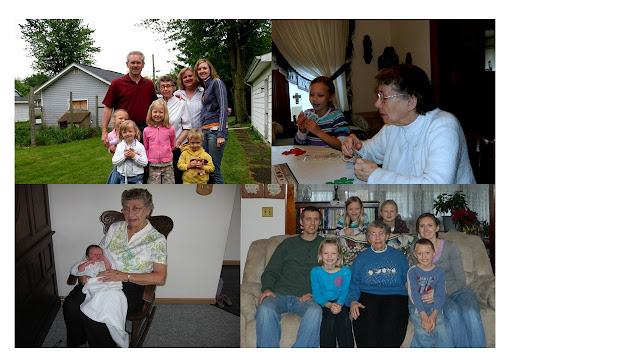Under the Mango Tree
I’ve often heard that people in West Africa talk, conduct
business, and just generally live under the mango trees—and tonight we got to
experience that for the first time.
We are still doing our orientation here, and are spending a few weeks living with other missionary families throughout the country. This afternoon our host family took us out
visiting to the home of an African family they have known for years. I have taken very few pictures since
arriving here, not because I don’t want to, but because I am being cautious and
do not want to offend anyone. So I will
do my best to paint the scene for you with words.
It’s the middle of rainy season, but the afternoon is dry
and pleasant; a cool breeze brings a cover of gray clouds to provide shade
from the hot sun. We walk into a courtyard whose boundaries are
merely suggested by the placement of several buildings of different sizes. The main house is on the left, a four-room
building with a bedroom for the parents, a bedroom for the children, a living room,
and a storage/workroom. The entrance to
this house is through the front porch, which is covered in a pretty mosaic
pattern made from pieces of broken tiles.
The house has recently been built, and even now projects are finished as
time and money become available. Even
though it’s Sunday, a mason is working hard to finish the concrete on the steps
and the side of the porch.
To the right is a smaller, rectangular building where the
tools and other miscellaneous items are kept. A little farther down on the right is a small
square building: the kitchen. And the next building is a round hut made
out of mud bricks, with a thatched roof that functions as an extra bedroom for
some of the children. The back part of the courtyard is home to a
lovely Mango tree.
As we walk over the red dirt through the courtyard, we are
greeted and immediately children are sent to bring out chairs for us, which are
placed in a circle under that lovely tree.
The mother is busy braiding the youngest daughter’s hair into neat rows. The father is supervising the work on the
porch, and greeting other people that happen to stop by. Children are everywhere, in and out of the courtyard,
and most of them from other families.
White people are an interesting spectacle, and definitely a reason for
children to stop their play and come observe the strange people with white
skin.
Our hosts are providing tea for us, prepared by their
teenage son, with a skill and technique to equal that of a barista in a fancy coffee
shop in the States. Quite a long
process, but a delightfully strong, sweet, foamy tea is the result.
The conversation is a blend of French, English and the local
language, and there is much we don’t understand. But hospitality can cross the language
barrier, and the hostess sets before us two steaming plates of rice and fish
balls, with a spoon for each of us. (To
Joya, the community plate is preferable to individual plates, because this way
no one tell how little she has eaten!)
Night falls quickly, and we head for home, knowing we will
remember always our first African tea under the Mango Tree.





Comments
Joy